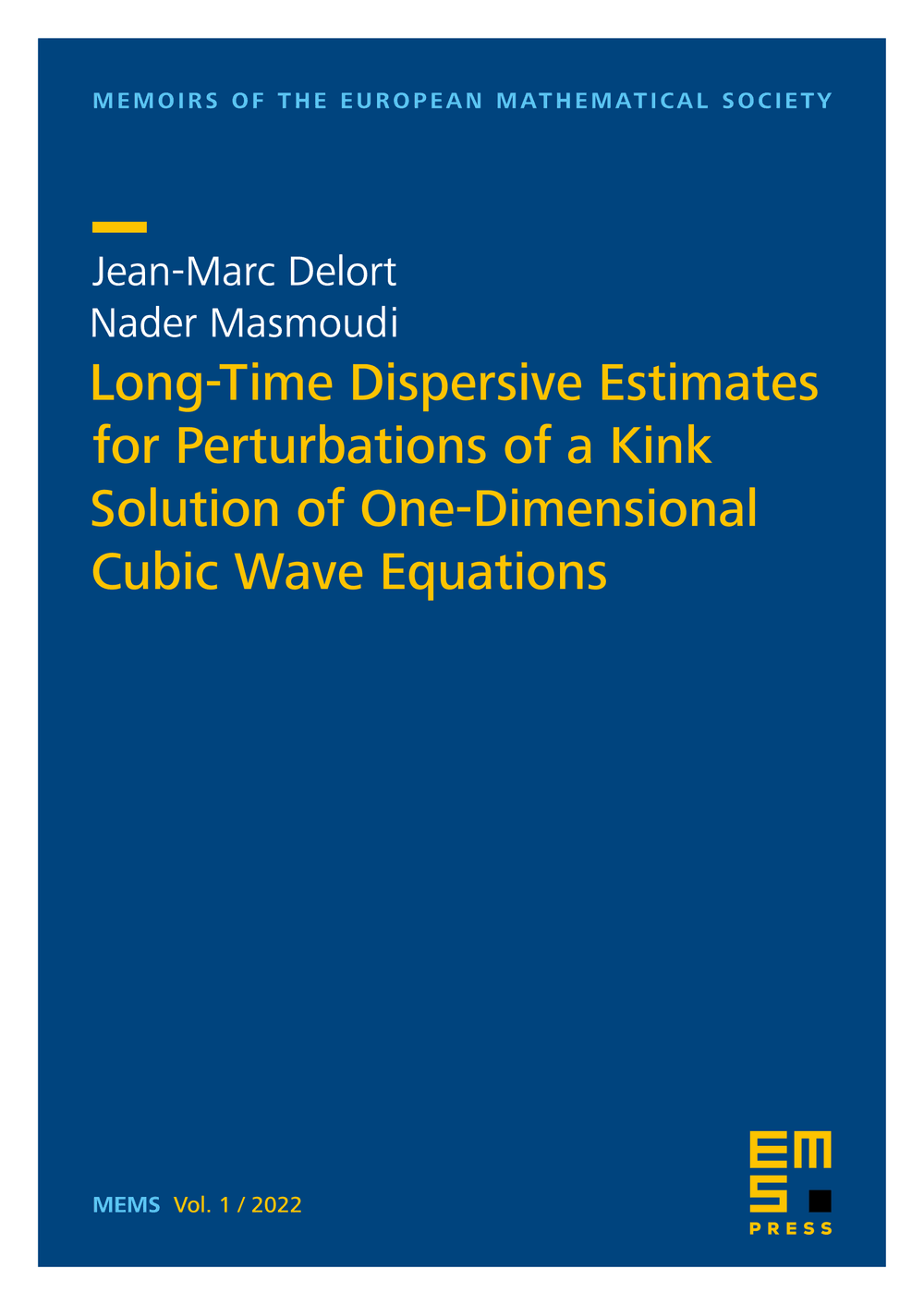Long-Time Dispersive Estimates for Perturbations of a Kink Solution of One-Dimensional Cubic Wave Equations
Jean-Marc Delort
Université Sorbonne Paris-Nord, FranceNader Masmoudi
New York University Abu Dhabi, United Arab Emirates; Courant Institute of Mathematical Sciences, USA

This book is published open access.
A kink is a stationary solution to a cubic one-dimensional wave equation that has different limits when goes to and , like . Asymptotic stability of this solution under small odd perturbation in the energy space has been studied in a recent work of Kowalczyk, Martel and Muñoz. They have been able to show that the perturbation may be written as the sum , where is a function in Schwartz space, a function of time having some decay properties at infinity, and satisfies some local in space dispersive estimate. These results are likely to be optimal when the initial data belong to the energy space. On the other hand, for initial data that are smooth and have some decay at infinity, one may ask if precise dispersive time decay rates for the solution in the whole space-time, and not just for in a compact set, may be obtained. The goal of this work is to attack these questions.
Our main result gives, for small odd perturbations of the kink that are smooth enough and have some space decay, explicit rates of decay for and for in the whole space-time domain intersected by a strip , for any , where is the size of the initial perturbation. This limitation is due to some new phenomena that appear along lines that cannot be detected by a local in space analysis. Our method of proof relies on construction of approximate solutions to the equation satisfied by , conjugation of the latter in order to eliminate several potential terms, and normal forms to get rid of problematic contributions in the nonlinearity. We use also Fermi’s golden rule in order to prove that the component decays when time grows.